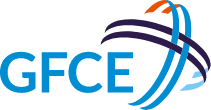4.1. IETF
Internet technical standards are developed mainly by the Internet Engineering Task Force (IETF). The main internet standards developed by the IETF include the Transmission Control Protocol/Internet Protocol (TCP/IP), the domain name system (DNS), and the secure sockets layer (SSL).
Other significant standards developed:
- Transport Level Security protocol (TLS) recent revision TLS 1.3: Protects the privacy and the integrity of transmitted data
- DNS-based Authentication of Named Entities (DANE): enhances the effectiveness of TLS
- Automated Certificate Management Environment (ACME) protocol: enables the setup of a secure website in seconds
- Domain Name System Security Extensions (DNSSEC): Prevents the redirection of internet users to malicious sites or mail servers
- IPv6: Enables multiple users and devices to connect to the internet and provides security capabilities
- Mutually Agreed Norms for Routing Security (MANRS): outlines concrete actions which reduce the most common routing threats for networks
4.1.1. How to engage in standards development at the IETF
The IETF technical specifications are published in RFC documents, beginning as Internet-Drafts (I-Ds) which are then adopted, improved, and revised by a working group. An I-D can be authored by an individual or a group, and obtains standing in the IETF if adopted by a working group or approved as an RFC. A complete list of all active working groups, with links to their charters, discussion email lists, and other information is available on IETF Datatracker.
The IETF Policy Program is a virtual four-week program targeting government officials, policy makers, and regulators. The program gives visibility to the IETF standards environment and covers three thematic tracks:
- The history of the internet and the IETF
- The internet’s inner workings
- Tackling internet challenges
Participants have an opportunity to engage with experts and leaders on leading-edge technical and policy issues, and immerse in the open standards development process by participating in IETF Working Group sessions.

